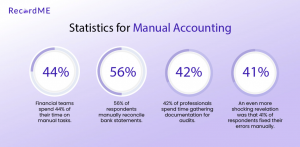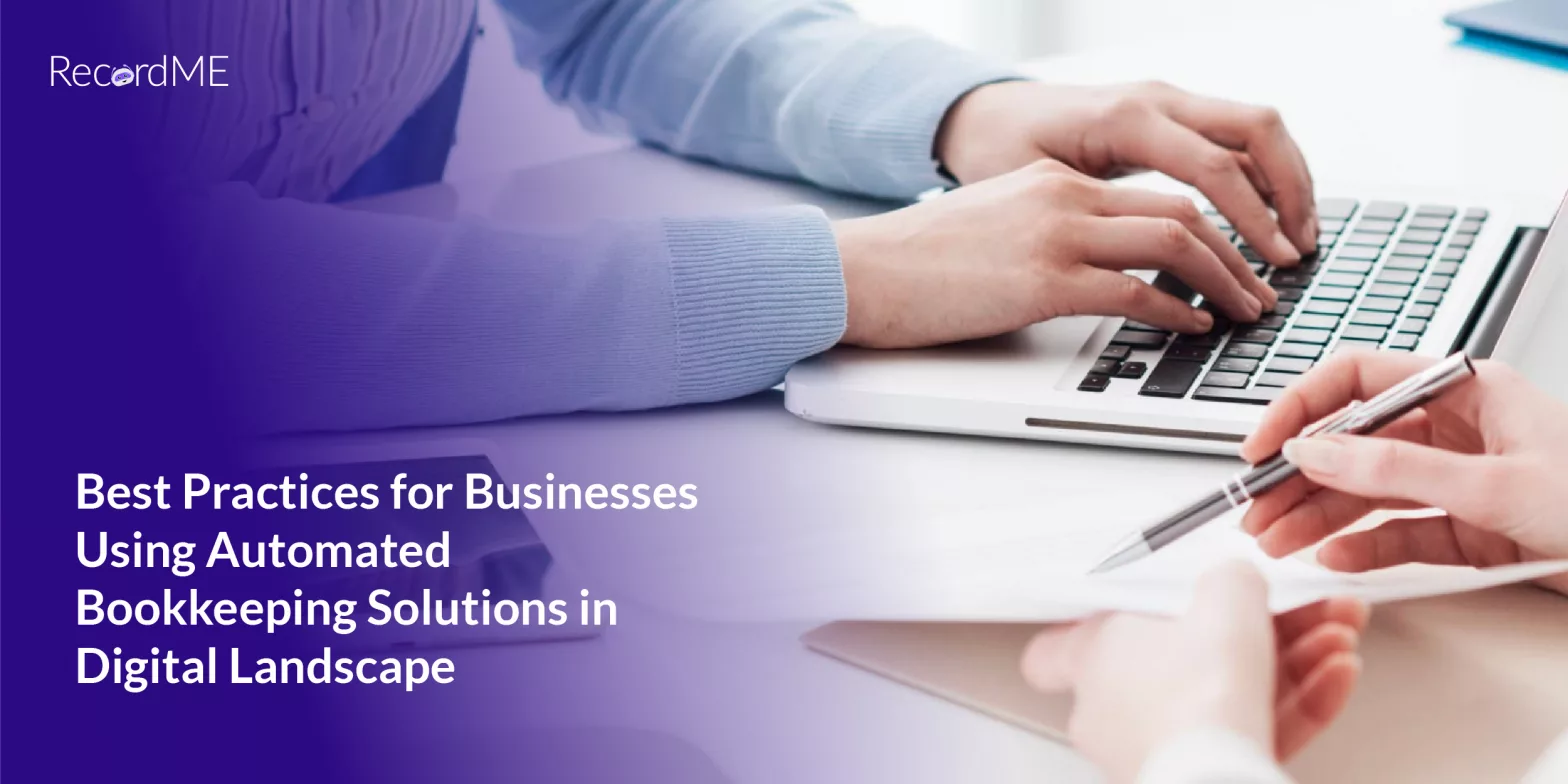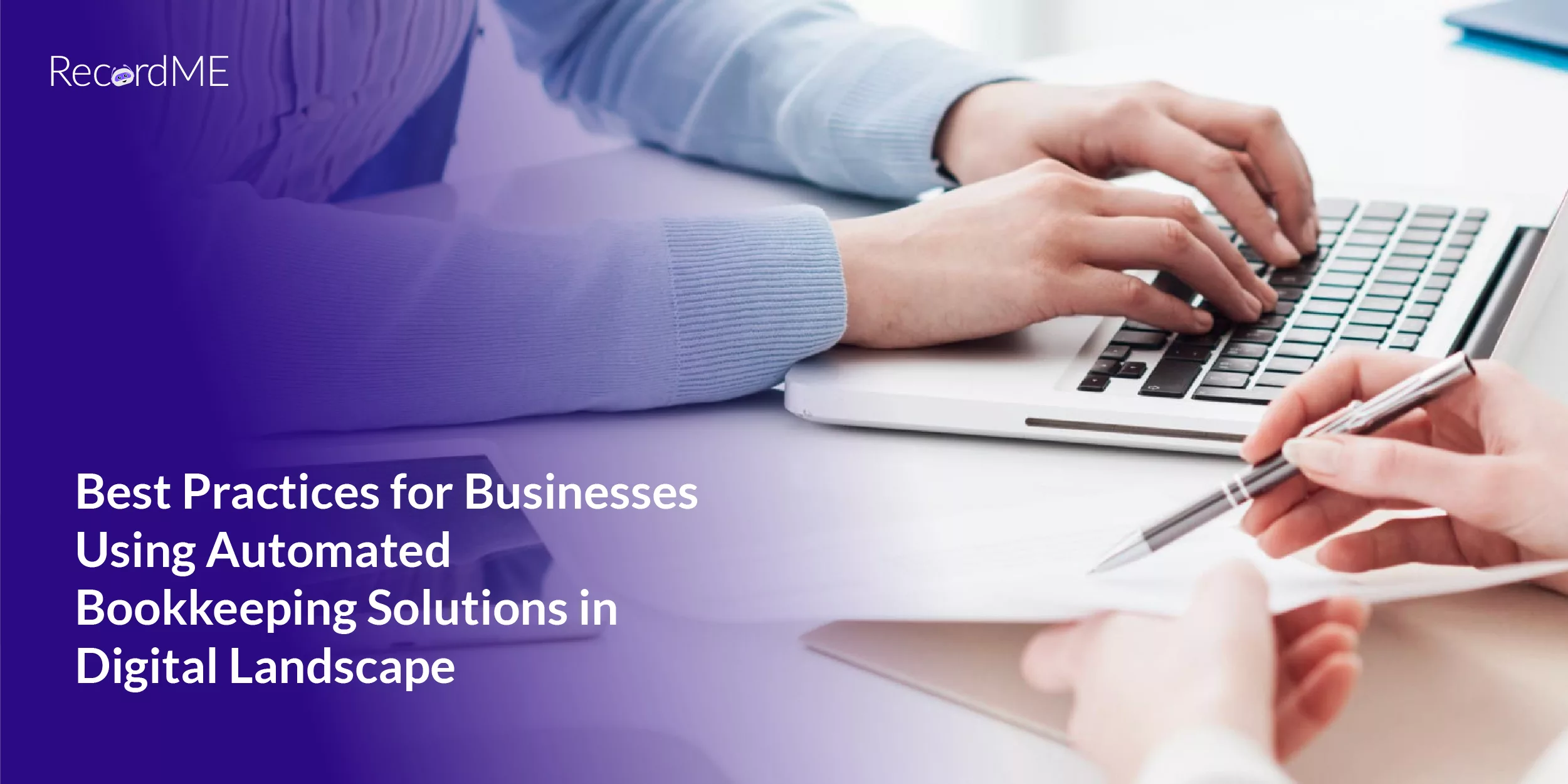Finance operations share similarities across various industries and geographical locations. Maintaining balance sheets, creating financial reports, and managing invoices are often essential tasks of accountants. Using software to accomplish these accounting tasks results in better accuracy, efficiency, and reliability. However, the current economic and market conditions encourage automated bookkeeping services to increase the productivity of accounting teams. Reports suggest that 35% of businesses still rely on paper checks for most payments. Although managing a few records manually is easy, it becomes challenging when companies start scaling. This article discusses how automated bookkeeping solutions differ from traditional accounting processes.
What is Manual Accounting?
Traditionally, Small and Medium-Sized Businesses (SMBs) have relied on a manual workforce to manage their financial bookkeeping. These systems are still commonly used in SMBs, where fewer transactions result in simpler finances. However, due to the widespread use of cloud technologies, smaller businesses are rapidly moving towards online services. Consequently, it leads to more financial records than accountants can manually handle. Entering invoice data, creating complex reports, and assisting business leaders in decision-making can be time and labor-intensive. Even though such companies use software to manage the data, a lack of accounting automation wastes time and reduces the productivity of accountants.

What is Digital Bookkeeping?
The primary objective of digital or automated bookkeeping is to revitalize the accounting workflows of a company and replace manual tasks with automated solutions. It utilizes advanced Artificial Intelligence (AI) and Robotic Process Automation (RPA) to achieve this purpose. Automated bookkeeping solutions help companies eliminate manual tasks like data entry and report generation. Using AI-powered solutions reduces the workforce’s burden and allows them to focus on higher-value tasks, such as strategic decision-making. Moreover, since online bookkeeping services use AI features, it reduces errors and ensures that gathered data is structured.
Suggested Reading: Answering Common FAQs about Accounting Automation and Bookkeeping
Manual vs Automated Bookkeeping Solution
An important thing to note here is that whether you are a small business owner or a CEO of a large enterprise, online accounting is the need of the hour for your company. The myth around such solutions is that they cost a lot, however, due to the recent advancements in AI and machine learning technology, the cost of such solutions has been reduced to a fraction. Moreover, it will help ensure the company’s data is as clean as possible during expansion or scalability plans. Here are some of the key ways in which an automated bookkeeping solution differs from manual accounting:
Accuracy and Margin of Error
The first difference between traditional and online accounting is the accuracy and margin of error in accounting operations. The human element results in numerous manual process data entry and calculation errors. In the long run, it can prove detrimental to a company’s reputation. In comparison, a virtual bookkeeping service utilizes advanced AI-based character recognition to ensure accurate data entry. Similarly, automated solutions also perform the calculations on the gathered data, replacing the need for accountants to conduct manual computations.
Reliability and Safety
Following up on the previous point, the system’s reliability is the next significant aspect to discuss. In accounting, data is the cornerstone of all operations. However, as discussed, manual systems lack efficiency in gathering clean data, which can hurt the decision-making processes of the business. Consequently, it results in an unreliable accounting system. Another problem with traditional accounting is its use of on-site data storage. In case of a natural calamity or an internal disaster, such as fire, the losses due to data waste can be huge. Automated bookkeeping services use cloud technology to safeguard the data by providing multiple backup options.
Expense Differences
Cost is one of the most critical aspects when comparing manual and digital bookkeeping. The upfront cost of online bookkeeping for a small business can be higher than traditional methods. However, since most companies want to increase business efficiency, time is a much more valuable commodity. Therefore, companies must decide whether to spend money on hiring a large manual workforce that still makes errors or on accounting automation that increases business efficiency and operational accuracy.
Simplify Pre-Accounting
Even the most seasoned companies find it challenging to manage tax season using manual methods. Discrepancies in tax reports can cause legal and reputational damages for a company. To overcome this issue, select a reputable virtual bookkeeping service that meets your company’s requirements. Look for features such as automated data entry, bank reconciliation, expense tracking, and invoicing capabilities. Take advantage of the reporting capabilities of online bookkeeping services to generate financial statements, profit and loss reports, and cash flow analyses. These financial reports provide valuable insights into a company’s financial health.
Automate Bookkeeping with RecordMe
By now, it should be clear that manual bookkeeping is not only a resource intensive but also an error-prone task. On the other hand, RecordMe empowers your company with its automated bookkeeping bot to simplify accounting workflows. Get rid of manual data entry, report generation, and utilize AI tools to get advanced financial insights. It provides the data a business leader needs when they need it for streamlining strategic decisions.







